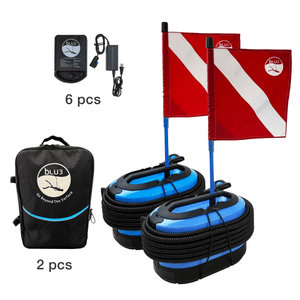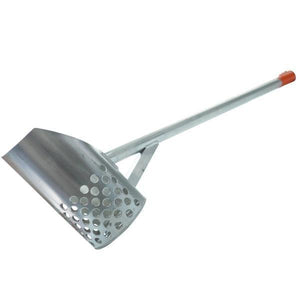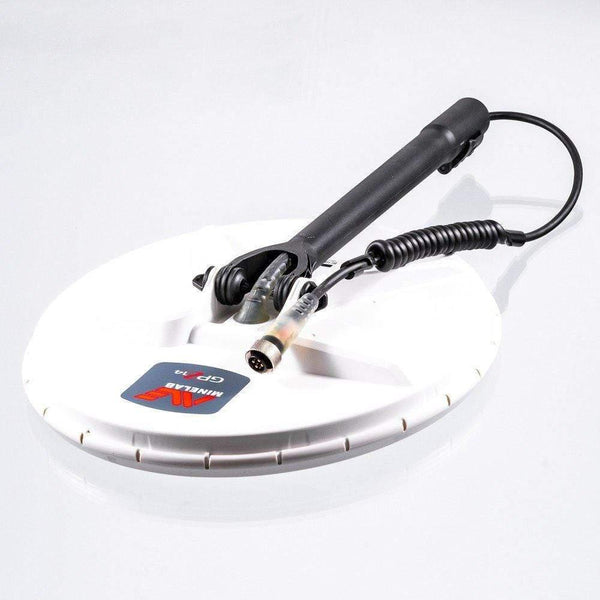The Top 10 Places to Metal Detect
Introduction
Metal detecting is an exciting and fun sport that lets you find secret treasures from the past while enjoying the great outdoors. Whether you're an experienced metal detectorist or a beginner looking for a new adventure, you'll find a lot of things to do. In this blog post, we'll talk about the top 10 places to metal detect. Each one is different and offers a chance to find history, valuable objects, and lost things.
1. Beaches
 Beaches are great places to go metal detecting because they are beautiful and you might find lost treasures such as coins, jewelry, and other artifacts. People typically drop valuables like rings and coins on sandy shores while they are relaxed in the sun. Also, the changing waves can dig up things that have been hidden for a long time. Before you go tracking on a public beach, make sure you know the rules and have any permits you need.
Beaches are great places to go metal detecting because they are beautiful and you might find lost treasures such as coins, jewelry, and other artifacts. People typically drop valuables like rings and coins on sandy shores while they are relaxed in the sun. Also, the changing waves can dig up things that have been hidden for a long time. Before you go tracking on a public beach, make sure you know the rules and have any permits you need.
2. Parks and Playgrounds

If you are just starting out with metal finding, local parks and playgrounds are great places to start. People tend to go to these places a lot, which makes it more likely to find coins and other small things that people have dropped. Look for good places to find near picnic tables, benches, and other leisure equipment. Always follow the rules of the park and get permission if you need to.
3. Historical Sites
 When you go metal detecting at historical places, you might find old items or relics. This can be an exciting experience. Look for old homesteads, battles, and colonies. Find out about the area's past if you want to improve your chances of finding a significant object. But make sure you get the rights you need and follow any local rules about historical places.
When you go metal detecting at historical places, you might find old items or relics. This can be an exciting experience. Look for old homesteads, battles, and colonies. Find out about the area's past if you want to improve your chances of finding a significant object. But make sure you get the rights you need and follow any local rules about historical places.
4. Ghost Towns

Exploring dead towns is a lot like going back in the past, and many detectorists love to do it. People who lived in these places before they abandoned them often left valuable objects and coins behind when they moved on. Find out where the dead towns in your area are or plan for a journey to famous ones. If you want to discover in these places, you should always get permission from the landowners.
5. Wooded Areas and Trails
 Even though you might not find a lot of coins or jewelry when using metal detectors in wooded areas or along hiking trails, you can find historical items and other secret treasures. People have been exploring these places for hundreds of years, and they have left behind objects that they may have lost or forgotten. Keep a look toward old paths, camping grounds, and wild streams, as these are great places to discover.
Even though you might not find a lot of coins or jewelry when using metal detectors in wooded areas or along hiking trails, you can find historical items and other secret treasures. People have been exploring these places for hundreds of years, and they have left behind objects that they may have lost or forgotten. Keep a look toward old paths, camping grounds, and wild streams, as these are great places to discover.
6. Rivers and Creeks
 Using a metal detector along riverbanks and streams can be fun because water may wash away dirt and reveal things that are hidden. People have traveled on rivers and creeks and played in them for a long time, leaving beneath precious metals, coins, and other relics. Be aware of the environment, wear proper equipment, and find out what the rules are for metal finding near bodies of water.
Using a metal detector along riverbanks and streams can be fun because water may wash away dirt and reveal things that are hidden. People have traveled on rivers and creeks and played in them for a long time, leaving beneath precious metals, coins, and other relics. Be aware of the environment, wear proper equipment, and find out what the rules are for metal finding near bodies of water.
7. Fairs and Festivals
 People often drop jewels, coins, and other kinds of small things at fairs and concerts, which are short-term events. Once the event is over, you might want to use your metal detector for a search around the area for any lost riches. Make sure to ask the event leaders for permission and follow any regulations that they may have set up.
People often drop jewels, coins, and other kinds of small things at fairs and concerts, which are short-term events. Once the event is over, you might want to use your metal detector for a search around the area for any lost riches. Make sure to ask the event leaders for permission and follow any regulations that they may have set up.
8. Campsites and Picnic Areas
 In national and state parks, campgrounds and picnic areas can be good places to find things with a metal detector. When camping or having a lunch, people often drop things such as gold coins, keys, and valuables. Always remember you comply with park regulations, get permits if you need them, and treat other guests with care.
In national and state parks, campgrounds and picnic areas can be good places to find things with a metal detector. When camping or having a lunch, people often drop things such as gold coins, keys, and valuables. Always remember you comply with park regulations, get permits if you need them, and treat other guests with care.
9. Old Churches and Cemeteries
 Old chapels and graves have their own special charm, and they frequently contain important historical things. When you use a metal detector in these places, you might find old relics, coins, or even hidden wealth. However, you should always be polite and kind when detecting in graves. Before you go tracking on private property, ask approval from the church or the landowner.
Old chapels and graves have their own special charm, and they frequently contain important historical things. When you use a metal detector in these places, you might find old relics, coins, or even hidden wealth. However, you should always be polite and kind when detecting in graves. Before you go tracking on private property, ask approval from the church or the landowner.
10. Private Property
 Keep in mind that you can metal-detect on private property if the owner lets you. A lot of landlords are happy to let detectorists search their property, particularly if they might find something old or clean up trash. Make sure to talk to the landlord, treat their property with care, and follow any rules they may set.
Keep in mind that you can metal-detect on private property if the owner lets you. A lot of landlords are happy to let detectorists search their property, particularly if they might find something old or clean up trash. Make sure to talk to the landlord, treat their property with care, and follow any rules they may set.
Tips for Successful Metal Detecting
At this point that we've talked about the top 10 places to metal detect, below are a few guidelines to help you have a memorable and enjoyable time:
1. Research
Before going on a metal detecting trip, it's important to do a lot of research to make sure the trip is safe and productive. First and foremost, study helps detectorists find possible sites with historical or cultural importance. This makes it more likely that they will find something useful. This knowledge also helps you get any rights or permits you need and makes sure you follow local rules and moral guidelines. Also, doing a lot of study helps detectorists learn more about the history and time periods of the chosen place, which helps them make better sense of what they find. It helps set up the right ways to dig and handle artifacts, which protects the originality of the findings. Also, study shows respect for cultural heritage by keeping sensitive or protected places from getting hurt. Overall, doing study before metal detecting is important because it can improve the experience, protect historical riches, and encourage people to do metal detecting in a responsible and ethical way.
2. Permission
When starting metal detecting, it is not only important but also necessary to make sure you have the right permissions. It is a very important step that makes sure detectorists act in a responsible and legal way. Permissions are important for many reasons. First, they help metal detectorists stay out of trouble with the law and escape fines or jail time. Without permission, metal detecting on private or protected land can be seen as trespassing or stealing cultural property. Second, permissions allow entry to certain areas, which makes it more likely that historically important items will be found while still respecting property rights and landowners' worries. Also, approvals may come with rules or conditions that help protect archaeological sites and make sure metal detecting is done in an honest and polite way. In the end, getting permission shows that detectorists value both the law and the setting in which they work. This helps protect cultural heritage and promotes responsible metal detecting as a whole.
3. Tools and Equipment
The most important thing to do before going metal finding is to make sure you have the right tools and supplies. Metal finding tools don't just make the activity easier; they also have a big effect on how well it works and how safe it is. For accurate and fast detecting, you need a high-quality metal detector that fits the terrain and targets. To dig targets without damaging objects or the environment, you need the right tools, like trowels or digging knives. Also, headphones are needed to hear sounds clearly in noisy places outside, and a strong backpack or pouch helps keep tools organized and easy to find. For safety and comfort, you should also bring extra batteries, a first-aid kit, and clothes that are right for the weather. Overall, investing in the right tools and equipment helps metal detectorists get the most out of their trips, increasing their chances of making valuable finds while still being respectful of the environment and historical places they visit.
4. Respect the Environment
Respecting the environment is not only the right thing to do, it is also a key part of being an ethical metal detector. Before going on a metal finding trip, it's important to think about how your actions might affect the natural environment. If you dig carelessly or mess with the plants, it can hurt the environment, change where animals live, and cause soil loss. To protect the environment, it's important to stay on marked roads or trails and stay away from sensitive or protected places like wetlands or archaeological sites. Also, it's important to throw away trash the right way, since littering or not filling in holes can hurt both the environment and the image of metal finding as a responsible sport. By being kind to the environment, metal detectorists can make sure their hobby will last, reduce their impact on the environment, and help keep the natural beauty and dignity of the places they visit.
5. Safety First
When you go metal detecting, safety is among the most important thing, and anyone who is thinking about taking up this sport should make safety their top concern. Before going out, people should think about a number of safety issues. First, metal detectorists should let someone know where they are and how long they plan to stay. This way, if something goes wrong, someone will know where they are. Second, you need the right clothes and gear, especially in rough or remote places where the weather can change quickly. For ease and to avoid getting hurt, you need sturdy boots, clothes that are right for the weather, and safety gear like gloves and sunscreen. Also, it's important to have a first-aid kit with you and be aware of any possible dangers in the area, such as rough ground, wild animals, or plants that can hurt you. Last but not least, safety also means using metal detecting tools in a responsible way and making sure they are treated safely to avoid accidents or damage to artifacts. By putting safety first, metal detectorists can enjoy their hobby while keeping themselves safe and reducing the risks.
6. Learn Your Detector
Before going on a metal detecting trip, it is very important to learn how to use your metal detector well. Your detector is your main tool, and you need to know how it works, how to set it up, and what it can do for a good and fun experience. Before you go out, take the time to learn how to use your device. Read the user instructions, watch educational videos, or talk to experienced detectorists. If you know how to change settings like sensitivity, discrimination, and ground balance, you can make your detector fit the surroundings and types of targets you'll be looking for. This increases your chances of finding valuable things and reduces the number of fake signals. Also, practicing in your own yard or a marked area can help you get better at using the detector and give you more faith that you can do it well. By taking the time to learn how your detector works, you will not only increase your chances of success, but you will also feel less frustrated and have a more fun and useful time metal detecting.
7. Be Patient
When it comes to metal detectors, it helps to be patient. This hobby often takes a lot of it, since success doesn't always happen right away. Metal detectorists must be ready to spend time and effort on each trip and be ready for times when they don't find anything important. Valuable items or treasures might be hidden deep, and it can take a long time to carefully scan, spot, and dig. Also, it takes time and care to learn the details of different places and to figure out what your monitor is telling you. If you rush through the process, you might miss out on chances or damage objects. Patience is not only important if you want to find more valuable things, but also if you want to fully enjoy being outside, learning about history, and the thrill of discovery. So, if you want to get better at metal detecting, you need to be patient. It's not just important, it's a key part of the process.
8. Join a Community
Before you go on a metal detecting journey, it is very important to join a metal detecting group. People at all levels of interest can learn a lot from these groups. They know a lot about metal finding and can tell you about the best tools, skills, and places to look for metal. Also, people with more experience can help newbies get started and avoid making common mistakes.
Conclusion
Metal detecting is an enjoyable pastime that connects history, adventure, and the thrill of finding something new. With appropriate tools and some study, you can find valuable items and learn interesting things about the past. Whether you're exploring beaches, parks, historical places, or private land, always make sure you have the right permissions and are mindful of the environment and the property of others. Good luck on your hunt, and may you find the secret gems that are waiting below the earth's surface!


































